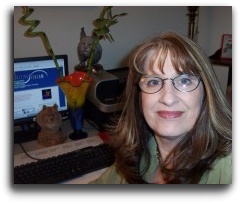Steve Hammons has worked as a journalist, editor, counselor, juvenile probation peace officer, public safety urgent response specialist, teacher, instructor and U.S. Government researcher. He graduated from Ohio University, Athens, Ohio, with studies in communications (journalism focus) and health education (psychology focus). Hammons’ two novels tell the story of a U.S. intelligence and joint-service military research team investigating unusual phenomena.
------------------------------------------------------------------------------------------
Cautious Approach is Wise on Project SERPO, Sensitive Information
By Steve Hammons
Feb 1, 2007
The sky didn't fall. Society didn't collapse because remote viewing programs became public.
In fact, when you learn about what these people accomplished, it can make us respect their willingness to "think outside the box." They took bold and creative steps to discover important kinds of knowledge that is still developing.
--------------------------------------------------------------------------------
‘Remote Viewing' Important For Us Now
By Steve Hammons
Jan 23, 2007
Looking at the many challenges we face as individuals, families, communities, nations, cultures and as the human race on Earth, we may find that the natural, but often untapped, abilities we all possess can be very helpful in making progress. In addition to our normal skills and efforts in a wide range of everyday human endeavors, the somewhat unconventional areas often called “remote viewing” and “anomalous cognition” should also be added to our list of resources and assets.
-------------------------------------------------------------------------------
'Remote Viewing' has Basis in Science, Military Intelligence
By Steve Hammons
Jan 19, 2007
'Remote viewing' is a technique and skill that is quite interesting. Remote viewing usually refers to the original program sponsored by CIA, DIA and Army intelligence during the 70s, 80s and early 90s as well as offshoots of those techniques that have developed since. . . . At the least, it is interesting to read these stories and learn about the research. At most, it could change us for the better and contribute to the advancement of science, medicine and the human condition.



No comments:
Post a Comment